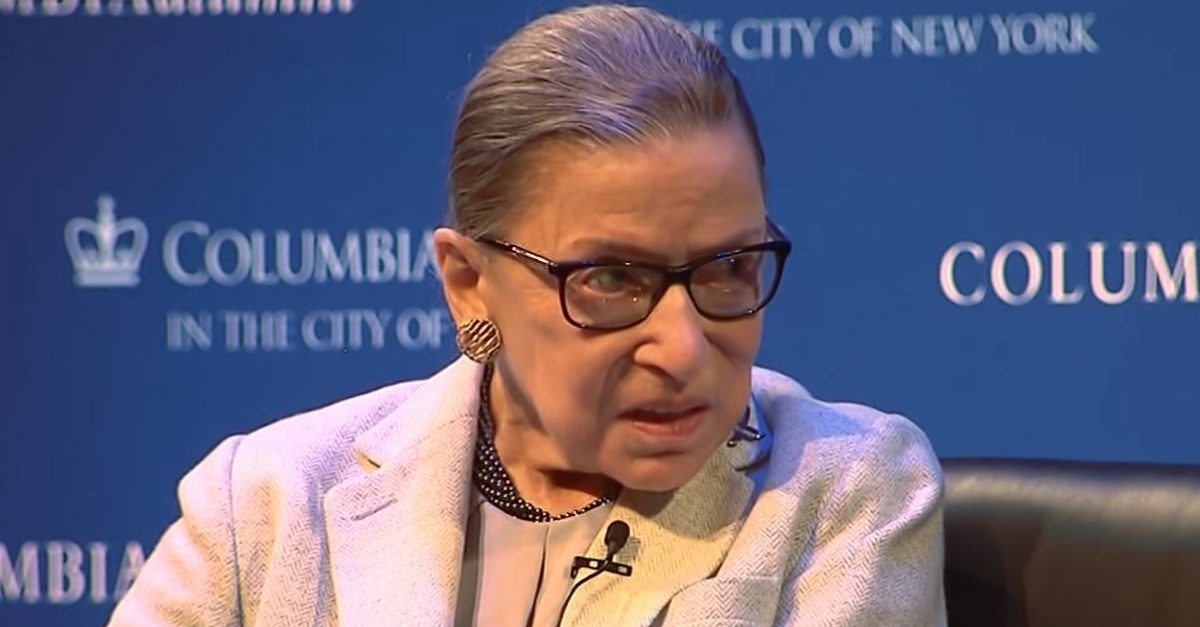
Justice Ruth Bader Ginsburg made an announcement on Sunday that should have left-leaning Americans breathing a sigh of relief: she has no intention of retiring any time soon. After a production of “The Originalist,” a play about her late friend and colleague Antonin Scalia, Ginsburg said she has at least a few more years left in her, and plans on remaining on the Court through President Donald Trump‘s current term and beyond.
“I’m now 85,” Ginsburg said, according to CNN. “My senior colleague, Justice John Paul Stevens, he stepped down when he was 90, so think I have about at least five more years.”
The recent departure of Justice Anthony Kennedy from the Supreme Court at the age of 81 has Democrats concerned of a shift in the Supreme Court’s makeup going forward. Kennedy, viewed as a centrist, was swing vote in many key Court decisions, sometimes siding with conservatives, at other times with liberals. Replacing him with current nominee Judge Brett Kavanaugh, a known conservative, could result in a significant shift in the Court’s decision making. While Trump’s previous pick, Neil Gorsuch, is a staunch conservative, he replaced a like-minded jurist in Scalia. If Trump were to have the opportunity to replace the left-leaning Ginsburg with a conservative, that would give the right a significant majority on the Supreme Court.
Well, that won’t happen if Ginsburg has anything to say about it. If Ginsburg sticks around until she’s 90, that would take her to 2023, well past the end of Trump’s current term in office. Should a Democrat defeat the president in 2020, Ginsburg would be able to retire with relative certainty that she would be replaced by someone left of center.
Meanwhile, the immediate future of the Supreme Court is a source of significant controversy with Kavanaugh’s nomination. Stoking liberals’ fears are statements and writing from the conservative judge that show that he does not believe a sitting president should be subject to litigation–civil or criminal–while in office, or even investigation. While it’s standing Justice Department policy not to indict a president who is still in office, Kavanaugh’s stance against even investigating a president could potentially have an impact on Special Counsel Robert Mueller‘s investigation. should the issue go before the Supreme Court and Kavanaugh be confirmed. He has also teased that he might rule to overturn Roe v. Wade, if given the opportunity.
[Image via CNN screengrab]